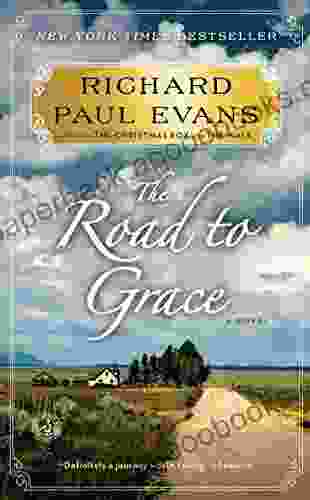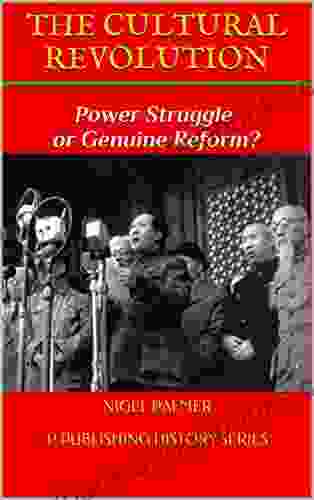Power Struggle or Genuine Reform? Deciphering the Enigmatic History of Book Publishing

The world of book publishing is a complex and ever-evolving landscape, shaped by a myriad of factors that have contributed to its rich and fascinating history. From the advent of the printing press to the rise of digital technologies, the industry has undergone a series of transformations that have both challenged and reinvigorated its fundamental purpose: to disseminate knowledge and connect authors with readers. However, amidst this dynamic evolution, a persistent question lingers: have these changes been driven by genuine reform or mere power struggles?
The Gutenberg Revolution: A Catalyst for Reformation or Power Consolidation?
The invention of the printing press by Johannes Gutenberg in the 15th century marked a pivotal moment in the history of publishing. By mechanizing the production of books, Gutenberg's invention made knowledge more widely accessible, fostering the spread of ideas during the Renaissance and Reformation periods. However, the of printing also raised concerns about the potential for abuse, as governments and religious authorities sought to control the flow of information.
5 out of 5
| Language | : | English |
| File size | : | 162 KB |
| Text-to-Speech | : | Enabled |
| Screen Reader | : | Supported |
| Enhanced typesetting | : | Enabled |
| Word Wise | : | Enabled |
| Print length | : | 13 pages |
| Lending | : | Enabled |
Some historians argue that the printing press was primarily a tool of power consolidation, allowing ruling elites to disseminate their own narratives and silence dissenting voices. Others, however, view it as a catalyst for genuine reform, empowering individuals with the ability to challenge established authorities through the written word. The debate over the true nature of Gutenberg's invention continues to reverberate today, reflecting the ongoing tension between the desire for free expression and the need for social Free Download.
The Rise of Mass Marketing: Commercialization or Accessibility?
The 19th century witnessed the rise of mass marketing techniques in book publishing, driven by the emergence of large-scale publishing houses. These companies employed aggressive advertising campaigns and distribution networks to reach a wider audience, transforming the publishing industry into a profit-driven enterprise. While mass marketing undoubtedly increased the availability of books, critics argue that it also led to the homogenization of content and the marginalization of niche voices.
Advocates of mass marketing contend that it democratized access to literature, making books more affordable and available to the general public. They point to the success of authors such as Charles Dickens and Mark Twain, whose works reached unprecedented audiences thanks to the efficiencies of large-scale publishing. However, critics argue that the pursuit of commercial success often overshadowed artistic merit, resulting in a decline in the quality of published works.
The Digital Age: Disruption or Evolution?
The advent of digital technologies has had a profound impact on the publishing industry, reshaping both the production and distribution of books. Digital printing has reduced the costs and time associated with book production, while e-books and online platforms have expanded access to a global readership. These advancements have democratized the publishing process, empowering self-published authors and giving voice to marginalized perspectives.
However, the digital age has also brought its own set of challenges. The rise of online piracy and the decline of physical bookstores have threatened the traditional revenue streams for authors and publishers. Moreover, the sheer volume of information available online has raised concerns about the quality and reliability of content, making it more difficult for readers to navigate the vast sea of digital publications.
The Changing Role of the Editor: Guardian of Quality or Gatekeeper of Power?
Throughout history, editors have played a crucial role in the publishing process, acting as gatekeepers of quality and shaping the content of published works. Editors have traditionally been responsible for selecting manuscripts, working with authors to refine their writing, and ensuring the accuracy and coherence of published material. However, in the digital age, the role of the editor is evolving, with some arguing that their traditional gatekeeping function is becoming obsolete.
Proponents of the "gatekeeper" model argue that editors are essential for maintaining the quality and integrity of published works. They contend that editors possess the experience and expertise to discern promising manuscripts from the deluge of submissions, ensuring that only the best works reach the public. Opponents of this view argue that the gatekeeper model stifles creativity and diversity, as editors tend to favor works that conform to established norms and appeal to mainstream audiences.
The history of book publishing is a testament to the dynamic interplay between power struggles and genuine reform. From the invention of the printing press to the rise of digital technologies, the industry has been shaped by a complex web of factors that have both challenged and reinvigorated its fundamental mission. While the pursuit of profit has undoubtedly influenced the trajectory of publishing, the enduring spirit of inquiry and the passion for storytelling have remained constant throughout history.
As the digital age continues to reshape the publishing landscape, we are presented with both opportunities and challenges. By embracing the transformative potential of technology while remaining steadfast in our commitment to quality and diversity, we can ensure that the book continues to play a vital role in fostering human connection, expanding our knowledge, and enriching our lives.
5 out of 5
| Language | : | English |
| File size | : | 162 KB |
| Text-to-Speech | : | Enabled |
| Screen Reader | : | Supported |
| Enhanced typesetting | : | Enabled |
| Word Wise | : | Enabled |
| Print length | : | 13 pages |
| Lending | : | Enabled |
Do you want to contribute by writing guest posts on this blog?
Please contact us and send us a resume of previous articles that you have written.
 Book
Book Novel
Novel Page
Page Chapter
Chapter Text
Text Story
Story Genre
Genre Reader
Reader Library
Library Paperback
Paperback E-book
E-book Magazine
Magazine Newspaper
Newspaper Paragraph
Paragraph Sentence
Sentence Bookmark
Bookmark Shelf
Shelf Glossary
Glossary Bibliography
Bibliography Foreword
Foreword Preface
Preface Synopsis
Synopsis Annotation
Annotation Footnote
Footnote Manuscript
Manuscript Scroll
Scroll Codex
Codex Tome
Tome Bestseller
Bestseller Classics
Classics Library card
Library card Narrative
Narrative Biography
Biography Autobiography
Autobiography Memoir
Memoir Reference
Reference Encyclopedia
Encyclopedia Lakota Grace
Lakota Grace Stephen Palmer
Stephen Palmer L J Trafford
L J Trafford Pin He
Pin He Joan De La Haye
Joan De La Haye Sharon E Buck
Sharon E Buck Jen Lowry
Jen Lowry Stephen K Scroggs
Stephen K Scroggs Jed Jurchenko
Jed Jurchenko Jim Hanson
Jim Hanson Jim Emerton
Jim Emerton Jlh Tavares
Jlh Tavares Jeanne St James
Jeanne St James Joel Kotkin
Joel Kotkin Jean Heller
Jean Heller Jim Hasse
Jim Hasse K J Jackson
K J Jackson Scott A Frisch
Scott A Frisch Joel Gaines
Joel Gaines Ted West
Ted West
Light bulbAdvertise smarter! Our strategic ad space ensures maximum exposure. Reserve your spot today!

 José SaramagoUnveiling the Enchanting World of The Earth Children Bundle: A Journey to the...
José SaramagoUnveiling the Enchanting World of The Earth Children Bundle: A Journey to the... Hudson HayesFollow ·13.1k
Hudson HayesFollow ·13.1k Terry PratchettFollow ·6k
Terry PratchettFollow ·6k Darren NelsonFollow ·18.9k
Darren NelsonFollow ·18.9k Jorge AmadoFollow ·17.6k
Jorge AmadoFollow ·17.6k Ian MitchellFollow ·14.1k
Ian MitchellFollow ·14.1k Craig BlairFollow ·2.1k
Craig BlairFollow ·2.1k Richard WrightFollow ·19.3k
Richard WrightFollow ·19.3k George R.R. MartinFollow ·6.3k
George R.R. MartinFollow ·6.3k

 Preston Simmons
Preston SimmonsEmbark on a Literary Odyssey with "Walking on Water": A...
Prepare to be swept...

 Ernesto Sabato
Ernesto SabatoUnlocking Policy Analysis: Dive into the Intricacies of...
: The Realm of Policy...

 Forrest Reed
Forrest ReedThe Road to Grace Walk: A Journey of Spiritual Growth and...
In the tapestry of life, we...

 Evan Simmons
Evan SimmonsTip Neill and the Democratic Century: A Political Odyssey...
The Rise of a Political Giant In the...

 Mark Mitchell
Mark MitchellUnwrap the Magic: A Review of Christmas Memory by Richard...
As the cold winter months draw near, and...

 Percy Bysshe Shelley
Percy Bysshe ShelleyBeyond the Veil: Delve into the Realm of Spirit with In...
Unveiling the Mysteries of the Unseen...
5 out of 5
| Language | : | English |
| File size | : | 162 KB |
| Text-to-Speech | : | Enabled |
| Screen Reader | : | Supported |
| Enhanced typesetting | : | Enabled |
| Word Wise | : | Enabled |
| Print length | : | 13 pages |
| Lending | : | Enabled |










